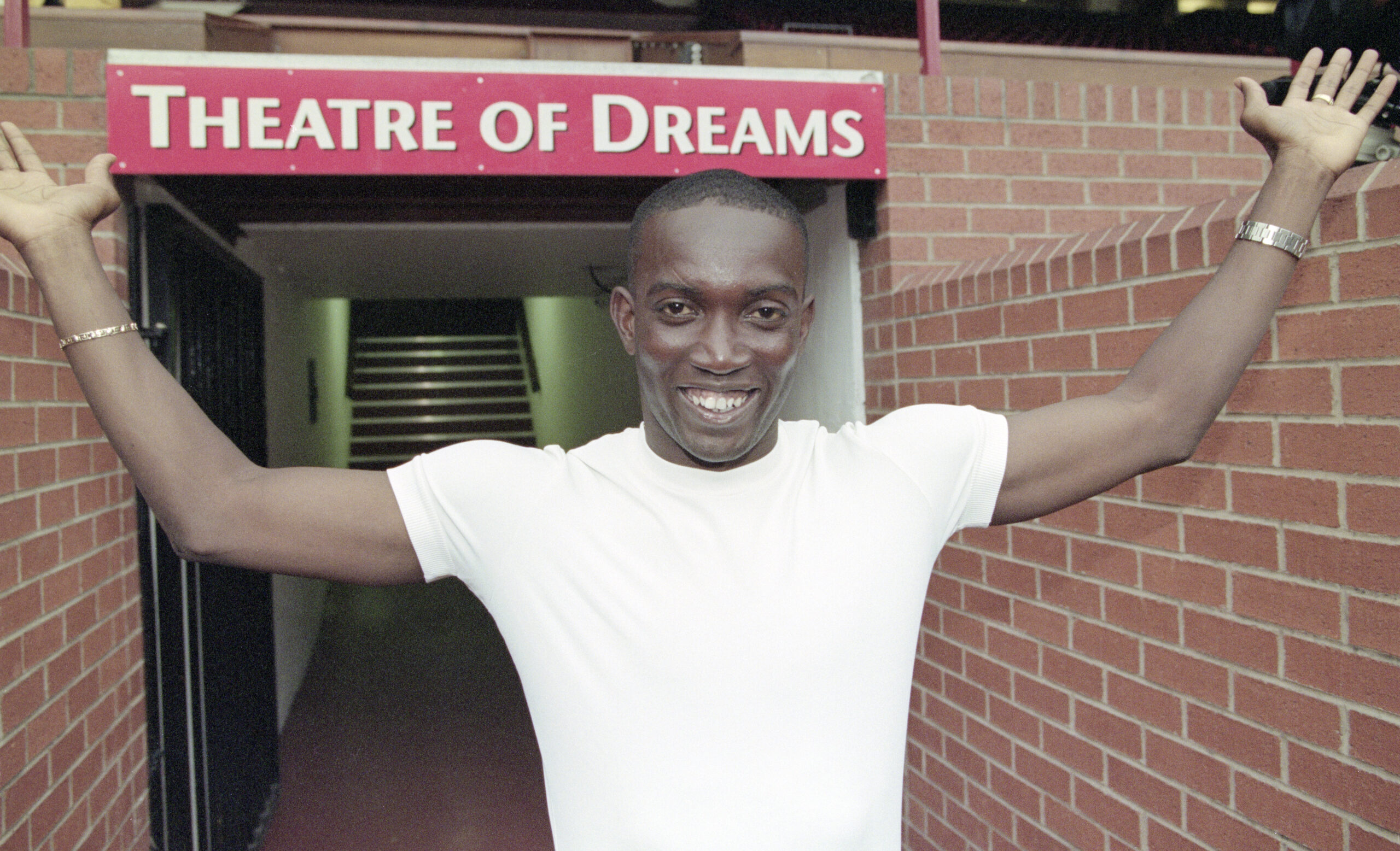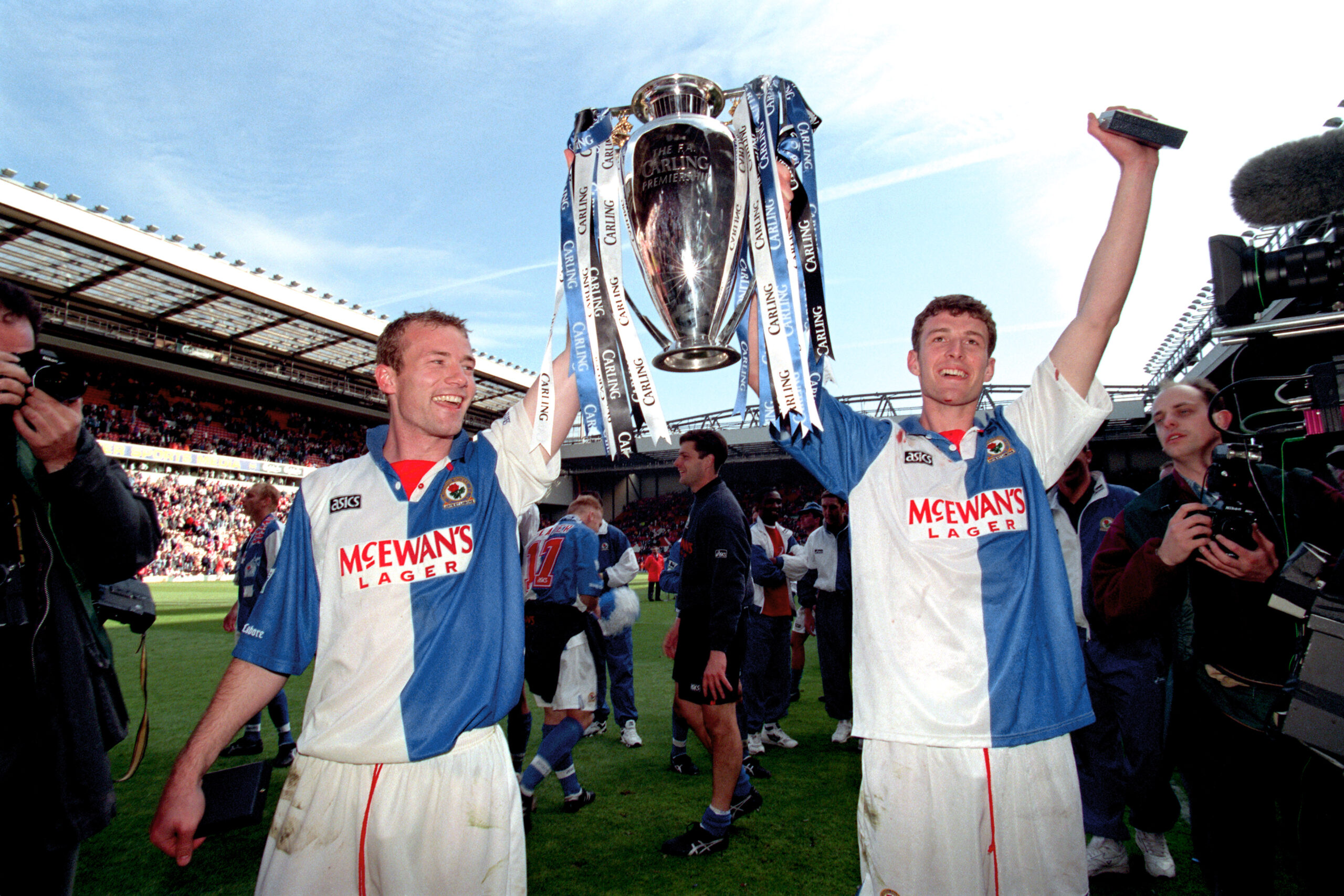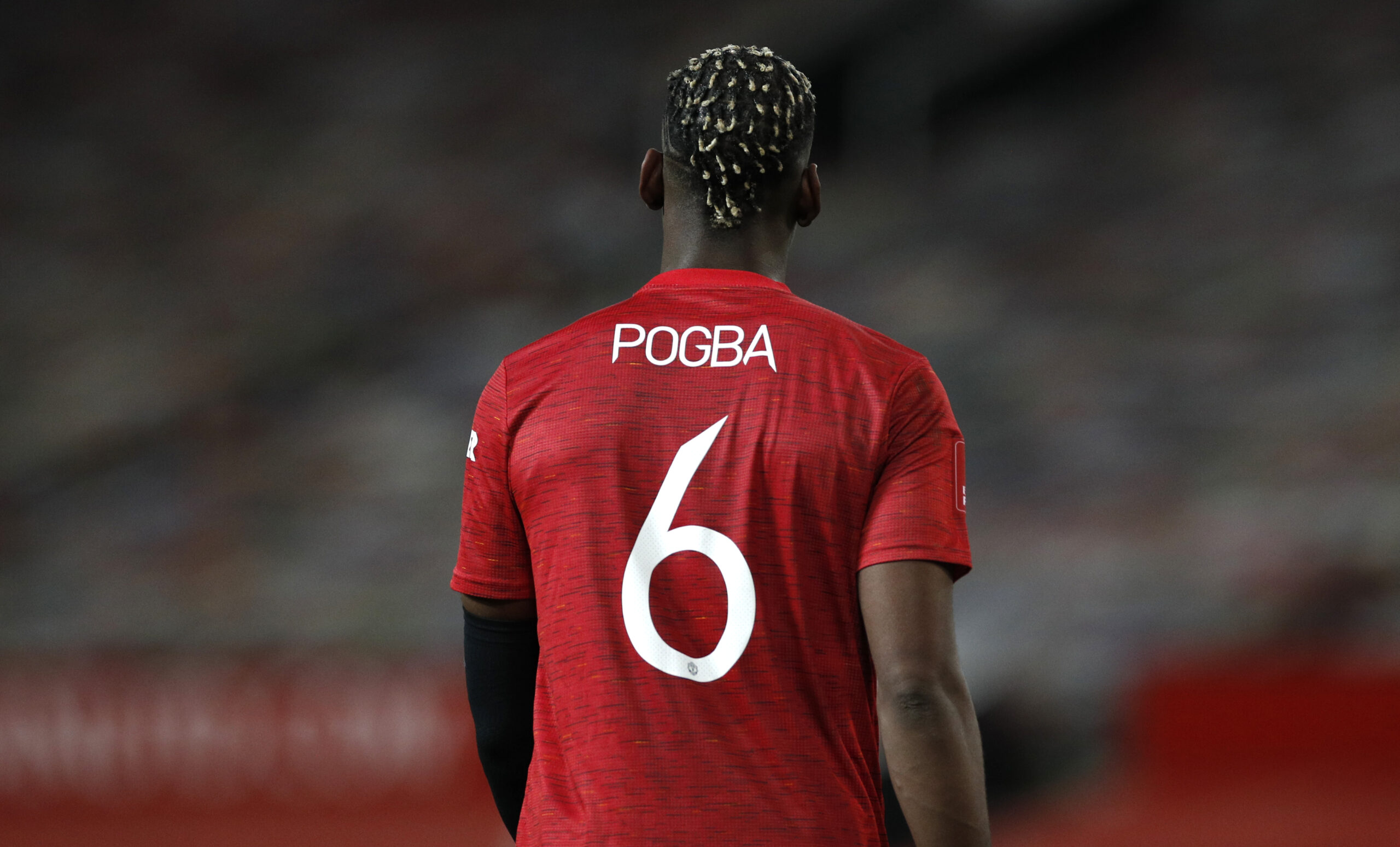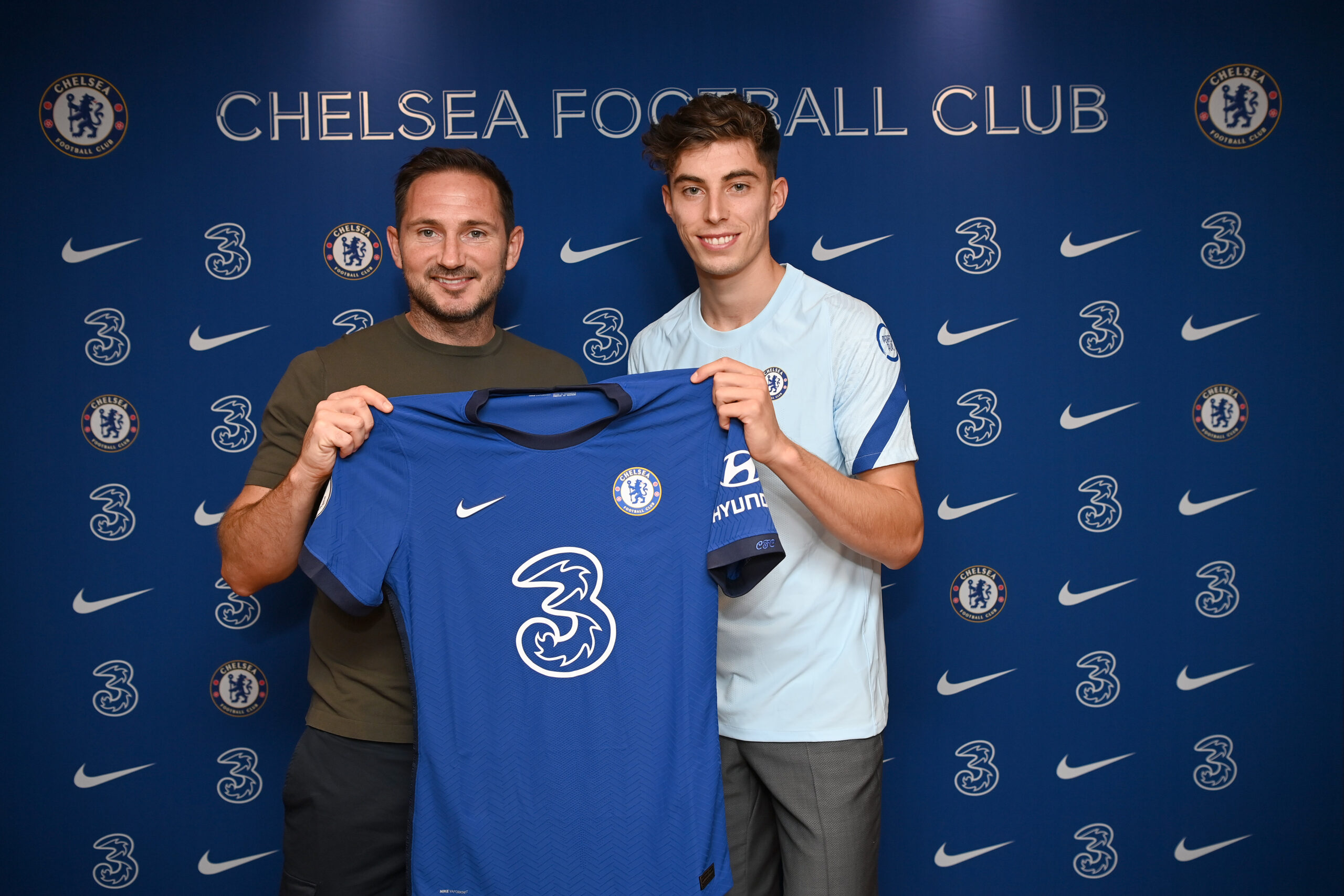Perhaps it should not come as a surprise to learn that Roy Keane was never going to roll out the red carpet for a new player at Manchester United who had just broken the club’s transfer record.
Dwight Yorke can still remember the excitement of his first day in Manchester, jogging out to the training pitches after a £12.6 million move from Aston Villa had made him the most expensive signing in United’s history
Advertisement
Alex Ferguson introduced Yorke to his new team-mates, then left him to get on with it — and Yorke has never forgotten what happened next.
“Keano is pinging a pass at me first time, as if to say, ‘Let’s see how you cope with that then?’ Smashed it at me, he did. He caught me off guard because I never thought he would hit it so hard from close distance. I didn’t control it properly and he said, ‘Welcome to United — Eric Cantona used to kill them’.”
Rio Ferdinand wore a cream suit for his first day at Old Trafford. His hair was peroxide and he had cost £30 million from Leeds United. It made him the most expensive defender in the world. And he was walking out for his first training session with serial champions such as Ryan Giggs, Paul Scholes, David Beckham and Gary Neville.
“If you’ve just cost £30 million they want to see what that buys,” Ferdinand says. “They want to know what you’ve got and will test you out.”
Ferdinand’s mistake was to play it safe. He had the ball at his feet, played a sideways pass and quickly learned that, no matter how much he had cost, it wasn’t going to spare him the snake-lick of Keane’s tongue.
“Keaney was never going to let me ease in gently,” Ferdinand says. “He went mental and barked, ‘Pass the ball fucking forward. I looked at him, his face all contorted, and he goes, ‘It’s fucking easy going sideways, pass it forward’.”
Welcome to United, indeed.
Look through the list of record signings affiliated to the Premier League clubs and there is a surprising number who are finding it difficult to justify the money.
It can certainly feel like a trick of the imagination that Arsenal — the club that advertised for a new manager in the Athletic News in 1925 with the line, “Only managers who will not spend big on transfers need apply” — could pay £72 million to sign Pepe from Lille. Pepe has flickered only sporadically in Arsenal’s colours and not managed a single 90-minute appearance in the Premier League this season.

Then consider Kai Havertz’s struggles since his £72 million move to Chelsea or the issues that Kepa Arrizabalaga, now their reserve goalkeeper, has encountered since joining the club for £71.5 million — two club-record transfers that were meant to symbolise an exciting new era at Stamford Bridge but have contributed, in part, to Frank Lampard’s sacking this week.
Advertisement
Havertz has tried to make a case that being the most expensive player in Chelsea’s history does not put him under extra pressure. “In football today, it is normal to pay these prices,” he said after his arrival from Bayer Leverkusen last summer. “I’m not going to let that get to me.”
Arrizabalaga used to say the same but, unfortunately for Lampard, there has been considerable evidence of it affecting them more than they were willing to admit. Havertz, in particular, has given the impression that his price tag weighs him down like a rucksack filled with bricks.
West Ham, meanwhile, have just sold their record signing, Sebastian Haller, for a loss of nearly £25 million. Don’t forget that Christian Benteke, Crystal Palace’s non-scoring goalscorer, signed from Liverpool for a record £28 million and Newcastle United’s supporters could probably be forgiven for suspecting Joelinton, at £40 million, will never be value for money.
The only mitigation, perhaps, is that there is a long history of footballers who have found it hard living with their price tags.
Andy Cole (Newcastle to Manchester United, £7 million): “I was scared, definitely scared. A transfer fee of such monumental, telephone number proportions was really beyond my comprehension. And, yes, it did bother me. A lot. That record fee was a very heavy burden.”
Emile Heskey (Leicester City to Liverpool, £11 million): “Eventually, it seeps into your mind and you do start to question yourself. If you are reminded about it every time you are interviewed, it’s eventually going to get into your head.”
Tore Andre Flo (Chelsea to Rangers, £12 million): “The price tag definitely made life more difficult for me. You can feel the pressure and that can take some of your energy away sometimes.”
Not everyone is wired that way, of course. Alan Shearer obliterated every transfer record when he left Blackburn Rovers to join Newcastle for £15 million in 1996.
Advertisement
“I was the world’s most expensive player and I loved it,” Shearer says. “I thought it was brilliant. The title of ‘world record signing’ is a great one to have. Other people might think it puts pressure on you — and perhaps it does — but it’s not your money and it gave me huge belief, huge confidence. If it put more pressure on me, then fine, I accepted that and enjoyed it. You might think it was a heavy tag to carry around, but I wanted it. In a weird sort of sense, it just stripped everything else away.”
Shearer had already been the most expensive footballer in Britain once before, going back to his £3.6 million move from Southampton to Blackburn in 1992.
“It was exactly the same there,” he says. “I just thought, ‘Great!’ — more pressure, had to deliver. I’m just one of those characters. Put it this way: it did for me in terms of having to focus than it did the other way, in terms of worrying.”
Keane took the record off Shearer when he moved from Nottingham Forest to Manchester United for £3.75 million a year later. Then, in Shearer’s second season at Blackburn, Chris Sutton joined him from Norwich City and the record was smashed again.
Sutton, a renowned scorer and accomplished leader of the line, had cost £5 million. He and Shearer were the “SAS”, the most feared strike partnership in the land, as Blackburn won the Premier League.
Yet Sutton found it jarring at times that his price tag meant so much extra scrutiny. “At Norwich there was no real pressure. I was doing well there. I used to like buying the newspapers every day and because I was scoring a lot of goals I was getting a lot of praise and being linked with lots of clubs.
“I liked all the adulation if I’m honest. Then all of a sudden I’d gone from getting glorious write-ups to being at Blackburn, for £5 million, and the landscape changed. People look at you in a different way when you have that price tag. I’d gone from having no pressure, in my own mind, to feeling the pressure.”
Advertisement
Sutton tells one story about his first game for Blackburn on a pre-season tour of Norway, thinking he had played reasonably well against a team called Steinkjer FK and a back-page headline of “Sutton has a Steinkjer” in the News of the World the following day.
He was 21 and, by his own admission, a bit of insecurity crept in. “It was the first negative press I had received. I was a young man and I didn’t understand it. I had to realise that I couldn’t have it both ways. I liked the adulation when things were going well. I had a remarkably big head, strutting around Norwich, and then a couple of dodgy headlines and I was a big baby in many respects. It was about having to prove yourself.”
Kenny Dalglish, Blackburn’s manager at the time, can remember Sutton being a “big shy guy” who needed time to adjust to being Britain’s first £5 million footballer.

Does Sutton agree? “If I was 10 years older, I would have been able to cope better. Not that I panicked — I just wasn’t used to it. I didn’t know what to expect and it didn’t sit comfortably sometimes. Everything changed with that move. My life totally changed. It certainly did affect me.
“On my debut against Southampton I missed a couple of chances and had all the scrutiny again. I did score on my home debut against Leicester and I felt the importance of that goal taking the pressure off. I had a decent start in general, including a hat-trick against Coventry. Had I not scored those early goals I think it would have been far worse. It was just learning how to cope with it.”
Shearer was a different kind of beast and, in Sutton’s words, “had a self-belief I’d never encountered before.”
Maybe, Dalglish suggests, that was part of the issue. “Maybe Chris came to the club thinking, ‘Goodness, that’s Alan Shearer, England’s centre-forward, what am I going to do here?’”
Advertisement
Shearer will readily admit he was disappointed when Keane took the record off him and delighted to get it back three years later. It pained him when Ronaldo took it away again, the Brazilian signing for Internazionale for £19.5 million.
“As I was leaving Blackburn, I was saying goodbye to some of the players,” Shearer says. “There was a posse of us hanging around and I remember Tim Sherwood asking what the fee was in front of all the guys. “Fifteen million,” I said. And he looked at me and went, “Oh, no pressure then,” in the way only Tim could say it.
“What he meant was, ‘Jesus Christ, good luck!’ But I loved it. The more pressure, the better. I’m just one of those characters. It kept me on my toes and made me focus. And once I had that tag I didn’t want anyone else to go for more money than I did.”
When Harry Maguire completed his £80 million move from Leicester City to Manchester United, making him the most expensive defender in the world, there was only one other player in the Premier League who knew what it was like to have that title.
“Good luck to him,” Virgil van Dijk, the previous record holder, said. “There was always going to be a time when it was going to change. The price comes with pressure but it doesn’t change too much because you always have pressure at big clubs. But I wish him well.”
Van Dijk had cost Liverpool £75 million when he signed from Southampton in January 2018. “Just focus on doing what you love to do and play your best game,” was the Dutchman’s advice. “Get your qualities out on the pitch, enjoy your game and don’t think about the other things. But it is not easy to shut off all the pressure.”
That pressure can affect people in different ways. Paul Pogba at Manchester United (£89 million), Rodri at Manchester City (£63 million), Tanguy Ndombele (£54 million) at Spurs and Gylfi Sigurdsson at Everton (£44 million) have often played beautifully but, on other occasions, fallen short of what might be expected.
Advertisement
Pogba, in particular, is measured against his transfer fee. Youri Tielemans has worn Leicester City’s colours with distinction since his club-record £40 million arrival. Ollie Watkins has quickly set about justifying his £28 million price tag at Aston Villa and maybe, in time, the same will be said of Fabio Silva for Wolverhampton Wanderers (£35 million) and Rodrigo at Leeds United (£26 million).

But the money is so huge in the modern era there is also an expectation, particularly at the clubs with the more demanding owners, to get an immediate return. “There is no time for a bedding-in process,” says one football club director. “If you’re forking out a record amount, you want to get something back straight away. We’re talking huge sums of money and, in today’s game, you want the players to fit in straight away. That’s just the way it is now.”
Lampard said last month that Havertz needed time and patience but, as Chelsea’s now-departed manager has discovered, that can rebound on the person in charge of the team. It is also part of a recurring pattern at Stamford Bridge given that their list of record transfers in the Roman Abramovich era includes Alvaro Morata (£58 million), Fernando Torres (£50 million) and Andriy Shevchenko (£30 million), none of whom lived up to the money.
Havertz is lucky in one respect that the absence of crowds means he has not had to endure chants of “What a waste of money” from opposition fans.
Trevor Francis, the first £1 million footballer, can still remember those songs more than 40 years since he created his own piece of history with Brian Clough’s Nottingham Forest.
“There was a lot of pressure on me,” Francis, recalling his first start at Ipswich Town, says. “I tried not to let it get to me but I remember getting terrible stick from the Ipswich fans. I did my best to block it out but every time there was a stoppage it felt like the same chants were going around the ground, over and over again. All the focus had been on me. I was familiar with the back-page headlines but this transfer was front-page news. It was the biggest day in my football career.”
With five minutes to go, the score was 1-1 and a cross came into the penalty area. “I knew I couldn’t reach the ball with my head but I could get to it with my fist and, as I jumped, I punched it into the back of the net,” Francis says. “I knew it was wrong, obviously, but I was prepared to do that because I was so desperate to get off the mark. The referee saw what had happened and gave a free kick. The game finished 1-1 and when we came in afterwards Clough ripped into me. He made the point, very forcibly… he expected me to play correctly.”
Advertisement
At least the modern-day player does not generally have to put up with the kind of issues that Kevin Keegan encountered in 1977 when he moved to Hamburg from Liverpool in a record £500,000 transfer and, to begin with, his new team-mates froze him out.
“The first six months were a nightmare,” Keegan recalls. “A lot of my new team-mates saw me as an unnecessary luxury. They shunned me. There was jealousy over money — understandably, given that I had almost doubled the German transfer record and was being paid more than any player in the history of the Bundesliga. I was picking up bad vibes almost immediately.”
Francis can remember receiving hate-mail through the post and eggs being thrown at his car. His wife, Helen, also received spiteful letters. “I see you’ve already spent your husband’s money,” read one. “That coat you were wearing on TV obviously cost a packet.”
There were begging letters, too. One asked for £5,000 so the letter-writer could give up his job and devote himself to a new career in poetry. Another was from a woman in Cornwall explaining that her husband was out of work and asking for money so they could have a meal to celebrate their golden wedding anniversary.
Phyllis, the player’s mother, was sitting at the hairdresser’s one day when another customer asked sarcastically, “So, what’s it like having a son who is a millionaire?” And Helen’s dad came close to “sticking one on” the guy who sneered at him: “New suit, have we? I expect Trevor’s bought you that?”

Sutton’s first few months at Blackburn were spent at the Dunkenhalgh hotel near Accrington. Word got out and one night the phone rang. “That was a Burnley fan threatening to break my legs,” he says. “I heeded his advice, which was never to set foot in Burnley. We got a lot of begging letters too. It was a big-money move and there were a lot of people asking for contributions.”
Keegan won over his Hamburg team-mates with his dedication in training and match-winning performances but he also makes the point that not everyone has that strength of personality. Sutton would later move to Chelsea for a record £10 million and scored only one goal in 28 Premier League appearances.
And perhaps the hardest part for Havertz, Arrizabalaga, Pepe, Joelinton et al is that the scrutiny now is fiercer than ever before.
